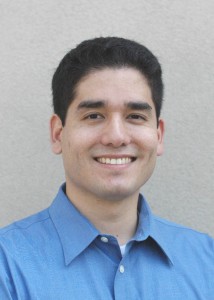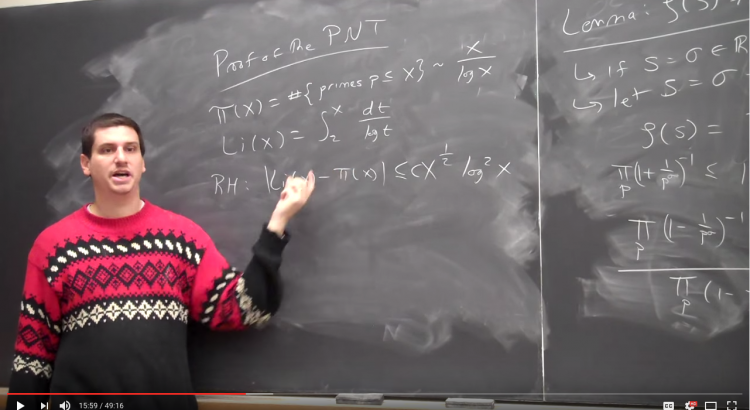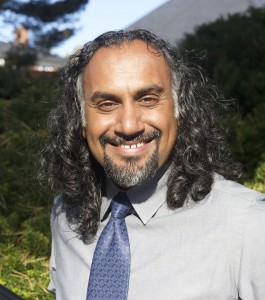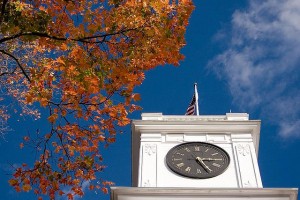
(with Assoc. Prof. Steven Miller of Williams College, pictured above)
Update on Phase II: https://lacol.net/hu-garcia-math-stats-pilots
In September 2016, a team of mathematics faculty, technologists and instructional designers from six leading liberal arts colleges (LACOL member schools Amherst, Haverford, Pomona, Swarthmore, Vassar and Williams) are launching a new collaboration to explore blended course sharing for select topics in advanced mathematics. The goal of the project is to experiment with models for shared course delivery which can supplement residential classroom learning and expand curricular offerings for math majors. Inspired by some independent experimentation and brainstorming between faculty team leads, Assoc. Prof. Steven Miller at Williams College (pictured above) and Assoc. Prof. Stephan Ramon Garcia (pictured at right), a group of six mathematicians from across LACOL began talking about possibilities for a multi-campus collaboration in early 2016. These conversations eventually led to a full project proposal which gained strong support from LACOL’s Faculty and Administrative Advisory Councils. The project was officially approved in July 2016 as a two-phased initiative. In the first phase (academic year 2016/2017), a feasibility study is planned which will execute several experiments and “proofs of concept” involving online/blended course elements such as lecture capture, online coaching and problem solving sessions (synchronous and asynchronous) and peer mentoring. With support from the multi-campus project team, these efforts will be spearheaded by Miller at Williams College in connection with his Spring 2017 ‘Problem Solving’ course. In phase two (academic year 2017/2018), findings from phase one will be brought to bear in a pilot course offering, ‘Real and Functional Analysis’, taught by Garcia. In a fully realized vision, the course would be offered both face to face at Pomona, and also opened virtually to interested students at all LACOL campuses. Local faculty and support contacts at each campus would help ensure students experience the best aspects of on-campus and on-line liberal arts learning.
Since mathematics faculty at all LACOL schools already teach a variety of advanced topics, this project will investigate how online/blended sharing may expand access to a richer array of options to meet student interests. Miller notes:
While liberal arts colleges excel in engaged faculty and personal interactions with students, we do not always have the course offerings available at larger institutions with graduate programs. Though often our students are ready for such classes, at each institution there are practical limits to offering them every year. Our goal is to increase the wealth and frequency of the advanced classes our students need, both for graduate study and to delve deeply in the subject.
Launch of the ‘Upper Level Math’ project has stirred excitement across the Consortium. The math team’s work is seen as an opportunity to collaboratively experiment with emerging online/blended pedagogies that might be useful in a variety of disciplines. It is also a chance for the schools to explore related policy issues of faculty and student credit in the context of online/blended course delivery and consortial partnerships. In considering these issues, the team will draw on experiences from peer institutions and other consortia who have been investigating these new models in a variety of ways. Swarthmore College Professor of Cell Biology Liz Vallen, who evaluated the project in-depth as a member of LACOL’s Faculty Advisory Council, commented:
This [project] seems exactly aligned with LACOL’s goals as it is leveraging the consortium to increase course offerings and availability at partner institutions. The other big benefit of this work is that it is a concrete example that will be a great pilot experiment to see if this is something feasible and beneficial within the LACOL framework.







